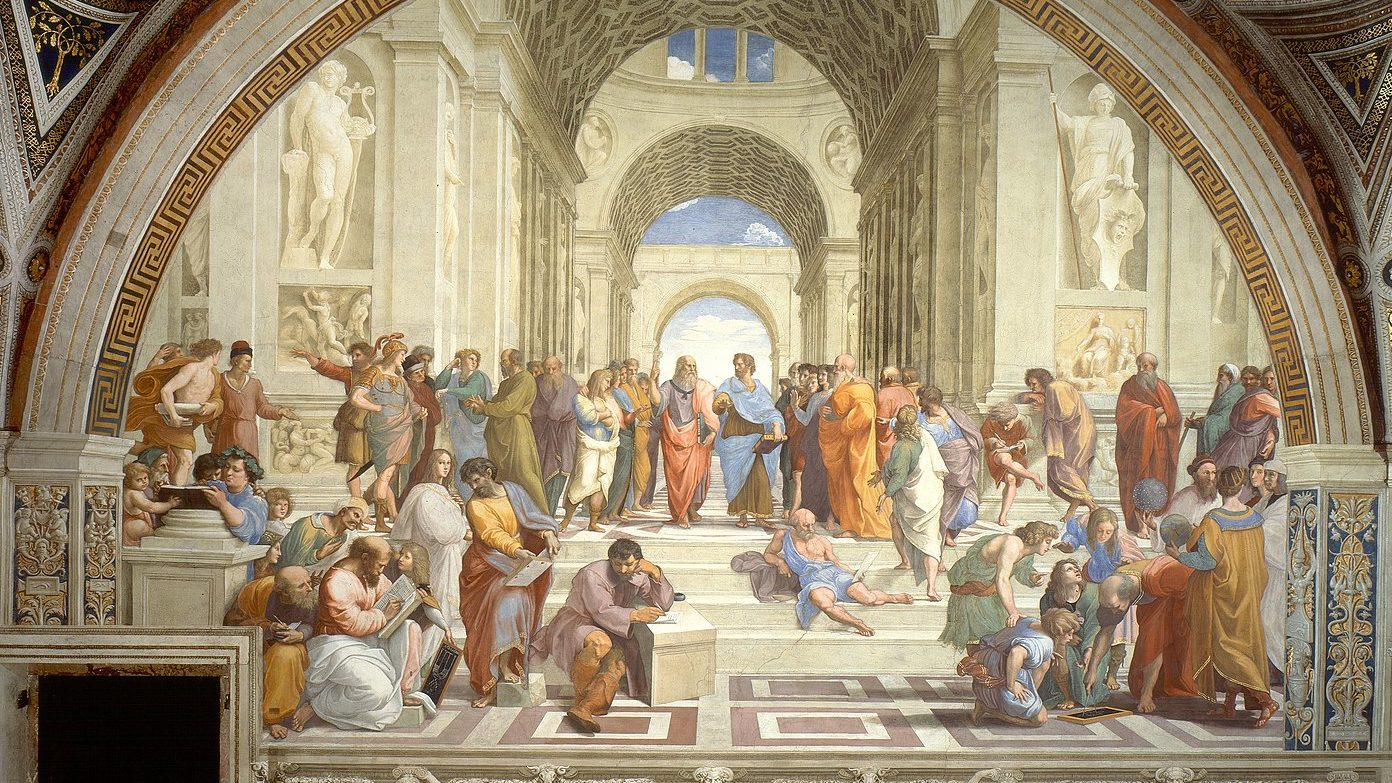The dangerous ideas of Diogenes the Cynic, history’s most outlandish philosopher

- Diogenes, a controversial ancient philosopher known for his unconventional and ascetic lifestyle, has remained an influential figure, commemorated in art, literature, and modern programs even centuries after his death.
- Despite his widespread renown, he has been undervalued in academic circles due to the practical nature of his philosophy and his disdain for societal norms.
- His rejection of social conventions, unique life experiences, and his promotion of a cosmopolitan and self-sufficient lifestyle offer insightful perspectives on the sociopolitical landscape of his era.
Even bronze is aged by time, but not all the ages, Diogenes, will destroy your fame, since you alone showed mortals the rule of self-sufficiency and the easiest path through life.
Inscribed on the base of the bronze statue erected by the city of Sinope in honor of Diogenes, shortly after his death, these lines were composed by one of his disciples, Philiscus of Aegina. His poem, while it insists on the philosopher’s renown in the Greek world of his time, also makes a bold prediction: Diogenes will not be forgotten! More than two millennia later, time has taken it upon itself to confirm the justice of this forecast. Diogenes’s memory has in fact not been extinguished. In 2006, the modern Turkish city of Sinop erected a new statue, proclaiming itself, by this gesture, the birthplace of the founder of Cynic philosophy. Diogenes is shown standing on a barrel, holding a lamp, a dog at his side. On the bulge of the barrel there is a second representation of the philosopher, here shown curled up with a book. Still more recently, Greece has issued several commemorative coins bearing the image of Diogenes, who is shown naked, leaning on a staff, with a dog on one side and, on the other, the large ceramic jar he called home for a part of his life.
Exiled from the city of his birth, an outcast, mocked and insulted by his contemporaries, Diogenes has become a tourist attraction and a patrimonial figure, adaptable to any purpose, however unexpected. Almost fifty years ago, in 1975, his name was given to a medical condition: Diogenes syndrome, a behavioral disorder marked by withdrawal from society, poor personal hygiene, domestic uncleanliness, and excessive hoarding of objects of all kinds. And some fifteen years ago, in 2005, Diogenes having long been a symbol of frugality, his name was given to a European Union program aimed at reducing obesity, DIOGENES, an acronym for Diet, Obesity, and Genes.
But this very modern and persistent impulse carries on an older tradition. Diogenes has been a source of inspiration for Western artists since the Renaissance. The highest honors came in the 19th century, in particular with two famous paintings by Jean-Léon Gérôme and John William Waterhouse. The first shows Diogenes seated at the opening of his jar, adjusting his lamp under the gaze of four dogs. The second shows him once more seated in his jar, now holding a scroll, with a lamp set down nearby; three elegant young women look down upon him from an adjacent staircase. Some years earlier Honoré Daumier had devoted a series of caricatures to Diogenes, depicting him alone or in the company of the flamboyant Athenian statesman Alcibiades or Alexander the Great. The lithograph published in 1842, where Diogenes appears as a ragman, is accompanied by a brief poem composed by M. de Rambuteau:
What, then, is Diogenes doing with a lamp?
some foppish young men wondered out loud.
I am looking for a man, he said, and with my slow lusterless eye
I do not see one; this did sorely vex them.
There are a number of reasons for Diogenes’s abiding place in collective memory, beginning with his shockingly unconventional behavior, the best-known instance of which, incontestably, is his practice of masturbating in public. To this needs to be added his embrace of mendicancy as a livelihood and his occasional habit of living in a large ceramic jar on the edge of the Agora in Athens. Two episodes in particular contributed to the formation of the legend surrounding him: on the one hand, his extraordinary encounter with Alexander the Great and, on the other, the disputed circumstances of his death. But, above all, Diogenes’s notoriety is bound up with the role he played in formulating a Cynic philosophy and encouraging its propagation, from the 4th century BCE down through the Christian era. His legacy was considerable, not only in respect of the challenge he posed to established authority but also because of his indifference to material comforts and his commitment to a cosmopolitan conception of citizenship. Diogenes’s teaching nourished a great many schools of thought, in antiquity and long afterward.
And yet in spite of his lasting influence on philosophical inquiry, Diogenes has remained the victim of two kinds of mistreatment, the first administered by the ancients, the second by the moderns.
A misunderstanding
Since antiquity Cynicism has regularly been passed over in the annals of schools of philosophy and Diogenes himself dismissed as a harmless scatterbrain. In the first half of the 2nd century BCE, Hippobotus, compiler of a list of philosophers and author of a treatise on philosophical sects, enumerated nine schools without mentioning Cynicism. Diogenes Laertius, whose biography of Diogenes, composed in the 3rd century CE, is the only one to have come down to us, rightly objected to this omission, emphasizing that “Cynicism is also a school of philosophy, and not, as some say, merely a way of life.”
The misunderstanding arose in large part from the fact that Cynicism is more than a body of doctrine; it is a philosophy of action, of ideas put into effect by its adherents. It does not pretend to the status of a philosophical system. It has no grand intellectual ambitions. Its purpose is a purely practical one, animated by a desire to be immediately comprehensible to all people, educated or uneducated. The Cynic therefore cannot be a scholar, detached from what he speculates about; he must be an agent, the exemplar of his own convictions.
In addition to being reproached for a lack of theoretical sophistication, Diogenes and his followers were regularly accused of immorality. Cicero, though he approved of Diogenes’s emphasis on free speech and independence of mind in relation to personal life, was by no means the first in a long line of critics who charged that the Cynic philosophy must be rejected in relation to social life, since its advocacy of shamelessness undermined moral sensibility and all that is “upright and honorable.”
In the eyes of the ancients, then, by denying the dignity and function of philosophy, Diogenes brought about his own downfall and that of Cynicism as well. The fact that in everyday language the term “cynicism” came to designate, not the school descended from Diogenes, but an attitude based on the rejection of hypocrisy and a mistrust of social conventions and received ideas, has done a disservice to the philosophical tradition of Cynicism by unjustly restricting the meaning and scope of its ideas.
The demotion of Cynicism in antiquity has been aggravated by its neglect by modern scholarship. When Diogenes has been seriously studied at all, it has been within the confines of a single field, the history of philosophy, and from a single point of view, which sees him as the founder of a philosophical tendency, nothing else. Very few economists, anthropologists, sociologists, or historians have regarded Diogenes as worthy of their interest. And yet philosophy is not the only thing he has to teach us. There is much more.
A distorting mirror
Many aspects of Diogenes’s life cast light upon the Greek city-states of the 4th century BCE. His peregrinations give us some idea of the place reserved for foreigners in these urban centers, and of the mobility of populations in a Mediterranean world that was much more open and connected than in previous centuries. Moreover, contrary to the familiar idea of fixed hierarchies in ancient society, Diogenes’s career testifies to the mutability of social status during this period, he himself having in the course of his life passed through every civic condition, successively citizen, resident foreigner, slave, and, finally, free man.
More generally, by his furious rejection of norms of all types, whether social, economic, or political, Diogenes illuminates their contours. Taken together, his transgressions amount to a negation of the standards of civic life. One thinks of his decision to live by begging, his refusal to marry, his celebration of a spontaneous sexuality, his contempt for property and his insistence on the paramount need for self-sufficiency, his scorn for privilege and wealth, his rejection of customary attachments, and his cosmopolitan outlook.
Diogenes delighted in bluntly pointing out the contradictions, the small-mindedness, in some cases the sheer absurdity of prevailing social conventions. And yet, unavoidably, he was a man of his own time, not always able to escape the hold of popular prejudice. Much more than he would have wished, Diogenes sometimes resembled the very people he scathingly criticized. In this respect, he interests us as much by what made him like them as by what made him different from them.





